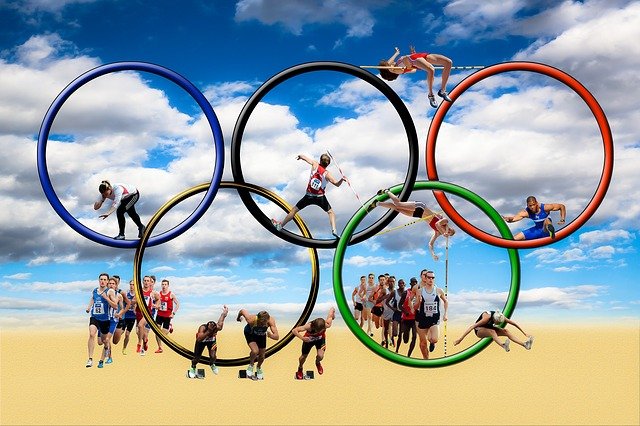By Marilena Kagkaraki,
After a year that the pandemic did not allow any events to happen and for people to gather in a place to celebrate all sorts of occasions, the most expected sports event is being held in Tokyo, Japan. The Olympics are going ahead this year -alongside the UEFA Champions League- a nice break from all the stress that the last two years have brought about. The Olympics might be in the foreground. However, a new issue arose that remained in the background for a long time. That is mental health in sports.
The matter took serious notice, when American gymnast Simone Biles, withdrew from the Olympics gymnastic team competition. In her statement, she mentioned how she now needed more than ever to prioritize her mental well-being instead of giving an out-of-focus performance. When the news first came out, everyone went to Twitter and talked about her giving up, being a coward, and generally did not sit well for a lot of people that wanted to see their country win a gold medal. But there were many people, on the other hand, who supported and stood by her decision to put her well-being first.

The news sparked this discussion and people in the comment section were torn between ’’quitting’’ and “putting themselves first”. Simone tweeted about the overwhelming amount of support and love she got and then proceeded to do some Instagram stories with some footage with “twisties’’ during her practice and concerning the state she was in. Even sponsor brands stood by her decision and stressed the importance of well-being.
All this attention the matter got shed light on the issue of the importance of mental health, especially in sports. Most athletes experience severe stress, pressure not only mentally but physically as well. Their well-being is being challenged constantly. Hours upon hours of training, no rest, pressure to exceed their limits. While some of it may sound even motivational, we are humans, and there is a limit to exceeding our best performances and ourselves. Sometimes listening to our bodies and mind is very crucial, because all this unrest and uneasiness will at some point hit, and it may not be good. Instead of taking care of ourselves and giving a bit of time, may prove extremely beneficial. The Faculty of Sports and Exercise Medicine U.K. together with the Sports and Exercise special interest group have done studies on this specific matter and found that:
- “It is also important to consider mental health problems that may be more common in those who play sport professionally, not recreationally. Here, sports can bring pressure rather than a benefit to the participant’s mental health. Athletes may be more susceptible to particular presentations: eating disorders (17); alcohol use (18); and suicide (19). Certain subgroups among professional sports show increased prevalence of mental ill-health: retired elite athletes(20, 21); those experiencing performance failure (22); those who have suffered an injury and other major negative life events (which happen to athletes more often as young adults) (23, 24)”.
- “Athletes tend not to seek support for mental health problems. This is found to be because of: stigma; lack of understanding about mental health and its influence on performance; perception of help-seeking as a sign of weakness (25). This can bring increased risks and requires a different approach that understands the cultural differences unique to the elite sport position statement”
The point here is that there is now an open road to discuss mental health, to understand people and their psychological needs that also affect physical health. It is really important to get rid of the stigma that comes with mental health struggles and acknowledges our needs. It is also important to see this discussion happening also around sports and athletes who experience constant pressure. In the end, we all have to take care of ourselves, both mentally and physically.
References
- Faculty of Sports Exercise Medicine, FSEM, The role of physical activity and sport in mental health, available link here.
- CBS News, Simone Biles opens up about withdrawal from Olympic competitions: ’’I don’t think you realize how dangerous this is’’.available here




